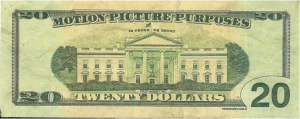Death, Taxes ... and Hearsay?
On the docket:
- The Court of Appeals of Virginia issued new published opinions as well as one from the Supreme Court of Virginia. Notably, we also have two wins for the appellants and underdogs, which is no easy feat.
- A hearsay exception refresher on statements against interest, inspired by the CAV’s recent decision: Bazemore v. Commonwealth
Court of Appeals: selected published opinions
First and foremost, we have an en banc decision, and en banc decisions are always worth a read. In Watts v. Commonwealth, the Court of Appeals outlined the parameters for how a Circuit Court may interpret its own prior orders. This was a defense win (for now), but don’t skip the concurring and dissenting opinions!
For our estate planning cohort, the Court issued a published decision in Lorenz v. Parker, analyzing whether a petitioner proved she was a decedent’s child pursuant to Va. Code Section 64.2-102.
In Khine v. Commonwealth, the Court discussed the burden of persuasion when a defendant raises an insanity defense, malingering, and a host of related issues. It is worth a read for any folks dealing with this issue.
Tax lawyers, we haven’t forgotten you. The Court of Appeals recently decided Commonwealth of Virginia v. FJ Management, Inc., affirming the Circuit Court’s decision that the Virginia Department of Taxation overtaxed a company for years. The Court even found that the Department violated the Due Process and Commerce Clauses in the process.
And last but not least, in Joyce v. Commonwealth, the appellant won after being convicted of uttering a forged bank note. How? By using such a terrible counterfeit bill that was “so obviously fake that no one [could] believe that it [was] true.”

Supreme Court of Virginia
In Bista v. Commonwealth, the SCV delved into admitting a child’s out-of-court statements and the Confrontation Clause.
Statements Against Interest:
a (mercifully brief) Hearsay Refresher
We know that a statement against interest is an exception to the hearsay rule.
The exception exists because courts assume, given sufficient indicia of reliability, “that a person will not usually make statements damaging to his own interests unless such statements are true.” 2 Charles E. Friend, The Law of Evidence in Virginia § 18-12 (4th ed. 1996); Randolph v. Commonwealth, 24 Va. App. 345, 356 (1997).
To use this, you must demonstrate:
1. The unavailability of the declarant. You must show that you made a good faith, reasonable effort (i.e. due diligence) to secure the declarant at trial;
2. The statement was against the declarant’s interest at the time it was made; and
3. The declarant was aware that it was against their interest when they made the statement.
The Court in Bazemore analyzed the unavailability requirement.
Bazemore was charged with possession of a firearm after having been convicted of a felony when a gun was found in his vehicle. Defense counsel had subpoenaed a witness who previously admitted possessing the drugs and firearm found. Although counsel subpoenaed the declarant, he was understandably reluctant to testify(!).
Counsel did not ask for a continuance when the witness did not appear, and counsel admitted it was a strategic decision to proceed with trial without the witness. When counsel attempted to invoke this hearsay exception, the Circuit Court determined that the unavailability requirement was not satisfied.
The Court of Appeals affirmed, determining that the trial court did not abuse its discretion. But note that the appellate standard of review is incredibly deferential—the Court is not suggesting that such a statement should never be admissible under similar circumstances. Instead, the Court is simply confirming the judge’s decision not to admit the statement was also reasonable. A different Circuit Court judge may have decided to admit the statement.
If your case hinges on the use of this hearsay exception, it pays to be familiar with recent cases and how the exception is applied.
Appellate Tip of the Day:
Always answer the Court’s hypothetical. Answer first—and only then attempt to distinguish your case or move on.


